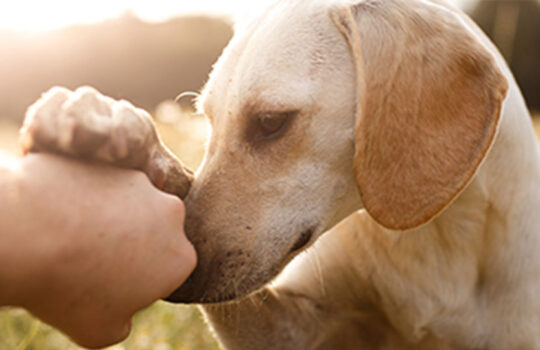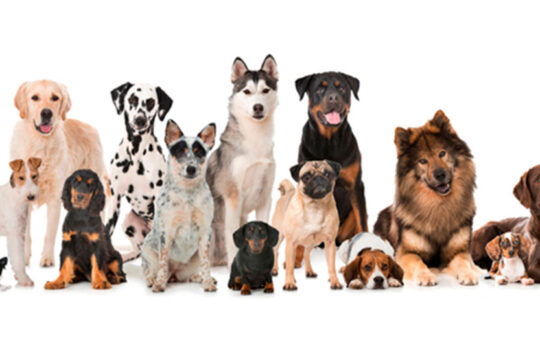It's a problem that many dog owners face every day - you've just started with your dog and it starts biting the leash. It's quite annoying, for one thing, and for another, it's not good for the leash in the long run either. But there's no need for this to be such an issue. All it takes to get it under control is some persistence and understanding.
Why does a dog bite the leash?
The first step in addressing this issue is to know why a dog bites the leash in the first place. This is mainly the result of excessive euphoria and because playing with the leash is fun. Because of its physical properties and the fact that it is held firmly at one end, a leash is great for chewing and pulling from a dog's point of view. If your dog seems more interested in carrying the leash, it is because he likes to carry something in his mouth. So, your furry friend bites the leash because he is getting something from it. This is a key point.
In some cases, this behavior may be a displacement activity, such as when you are doing training exercises with the dog, alone or at obedience school, and something becomes too much, too big or too difficult for it.
The role of man
As with many things that happen between people and their dogs, the owner of the dog is also involved in this problem. As you already know, a dog is particularly attracted to doing things that give it some kind of reward or reward. Whether or not this is the case with leash biting is up to you. It doesn't matter if your furry friend started it on his own or someone in the family, such as children, may have been the first to prompt it. From now on, the key point is to make sure the dog no longer succeeds with anyone and take the fun out of it.
Useful tips
There are several options to help your dog break the leash biting habit. Do what works best for you, including depending on the situation and what is most effective with your dog. It is important to be consistent. If your dog is sometimes allowed to bite the leash and sometimes not, all your efforts will come to naught.
Ignoring the
Sometimes all you need is to stop and stand still immediately without any comment and ignore the dog (don't even look at it) as soon as it starts (!) to bite the leash. If you don't let yourself get carried away in the game, the dog will not find it fun. Don't start walking again until he stops. Once he starts doing it again, repeat this tactic.
If immobility is not enough, you can also drop the leash. If your dog stays with you as a general principle, you can simply walk without paying any attention to the dog. After a few steps, pick up the leash again while continuing to ignore the dog. Alternatively, you can drop the leash and step on it. Stand still until your furry friend starts acting "normally" again. Another option is to hang the loop of the leash over a fence post while you walk and the dog bites it and walks on his own. If the dog stops, you can turn around and continue your walk with him. Don't talk to him.
This will teach the dog that it is not much fun when he starts biting the leash, but that you will continue to walk with him if he stops.
Signal to stop
If your dog already knows a signal to stop, then say it as soon as he starts playing with the leash. When he stops, give him a short praise and move on.
FeaturedSolutions
There are also two "technical" possibilities. First, you can put something the dog doesn't like the taste of on the leash in the area where the dog plays with it. It can be lemon juice or some perfume spray or something similar. Or you can try using a chain leash for a while. Dogs generally don't like to bite metal.
If your furry friend likes to carry something, then give him his favourite ball or something like that to carry while you walk.
Stop exercising
If your dog bites the leash as a shifting activity, you will need to change the current situation. If you are training, for example, this would mean completing the training session with some easier exercises.
Counterproductive responses
Even if you are bothered by your dog's behaviour, make sure to avoid nervousness, "tantrums" and so on. Any lack of calm, yelling and so on will only exacerbate the problem as the stress will rub off on the dog and you both will work harder and harder. You should also make sure that you do not pull the leash yourself. After all, that's what your dog wants - to play tug of war with the leash. So keep your cool at all times; if you do, you will definitely succeed!
Website: https://flexi.de/en/products/category/flexi-collection/
Editor: Katharina Schlegl-Kofler
Katharina Schlegl-Kofler has been working with dogs for more than 20 years. She is a certified dog trainer and author of numerous advice books on the subject of dog training. She is particularly interested in training dogs to be well-behaved family members from the beginning and offers many species-appropriate activities. She has been training Labrador retrievers for almost 30 years, training them for both daily activities and retrieving. She has also bred two puppies.




